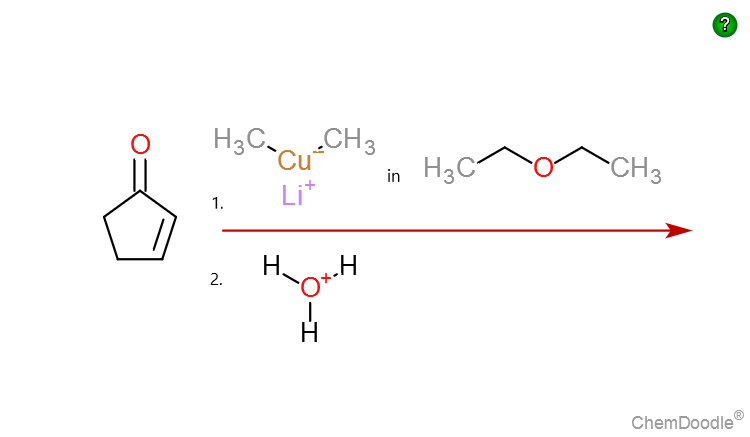Attempt
It seems to me that the carbon oxygen-oxygen bond would be more electrophilic due to the higher electronegativity of Oxygenoxygen. Hence I believe CH3$\ce{CH3-}$ should attack the carbonyl site. But this doesn't seem to be the case.
Is it because that the intermediate carbanion can undergo resonance with oxygen, had CH3-$\ce{CH3-}$ attacked carbon- carbon double bond?
What can be thea valid reason?


